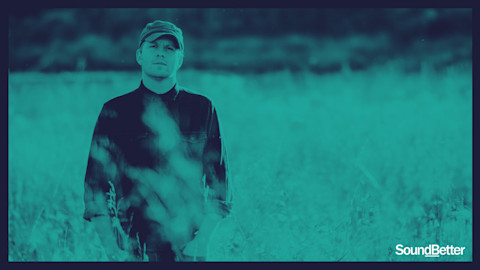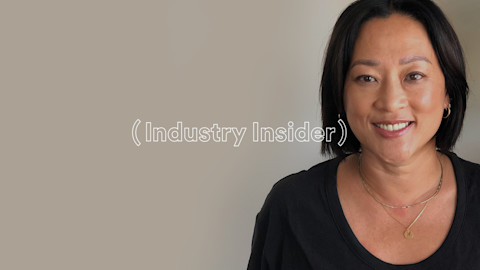What the singer-songwriter has learned by creating what she calls “slow music.”
When Lucy Dacus was thinking about how to follow up her critically acclaimed 2018 solo album, Historian, she decided to go in a novel direction: Throughout 2019, the indie singer-songwriter has been releasing stand-alone digital singles tied to official (and unofficial) holidays and seasonal events.
The series kicked off with a Valentine's Day-appropriate cover of Edith Piaf's "La Vie En Rose." A spare, stripped-down "My Mother & I" arrived next to commemorate Mother’s Day (as well as Dacus' birthday), while the easygoing country-folk tune "Forever Half Mast" arrived around Independence Day. More songs are coming later this year to mark Halloween, Christmas, and Bruce Springsteen’s birthday on September 23.
Dacus' label, Matador Records, gave her an unqualified green light after she approached them with her concept of rolling out a holiday-themed single every few months. To tie the series together, the cover of each single features a photo of Dacus in the same pose, but wearing a different color jumpsuit. (The hues were chosen to correspond to each holiday.) At the end of the year, she plans to compile and release the digital songs as a physical EP.
"I really love to share music, but this helps break the expectations of what that looks like," Dacus says. "In practice, I've been really happy to make music really slowly. People talk about slow food—it has made me feel like I'm making slow music. It feels low-stakes, but is still really meaningful."
Dacus adds that "My Mother & I"—a stunning song examining how bodies and souls intersect across generations—in particular falls into this category. "It inspired a really intense conversation that made [me and my adoptive mother] closer. A bunch of stuff has happened that I didn't expect from this project." We caught up with Dacus to talk about the possibilities opened up by her innovative approach.
Spotify for Artists: Where did the idea come from to release music this way?
Lucy Dacus: I had these recordings sitting on my laptop, because we just book studio time every couple of months. I love being in the studio, and it's good to work on stuff that isn't the album so we can play around. And we were doing covers, or songs that didn't make it on Historian, or maybe things that I thought might be demos for the next record, but turned into their own thing.
I wanted to share them, but I didn't really know what the reason would be. I noticed timeliness in the songs. There's a song that I wrote that's about New Year's, and then there's a song about America. I didn't write it for these holidays, but we made this excuse. Luckily, people haven't been questioning it, like, "This song doesn't make sense with this holiday." So far it's made sense.
I think it reflects an impulse in me to understand what's happening to me in the moment. I often write around holidays because they're really emotionally conflicted times. All sorts of celebrations have the foil of who's there, who isn't there, and why? I retreat to my room and write as sort of an escape.
What have been some of the surprising or unexpected things you've experienced in the release process to date?
It's almost like, unknowingly, I set out this path for myself through this year, where each song has a theme. And either from being interviewed, or talking about the songs with friends or a colleague or various people, these themes have pervaded my life.
When "La Vie en Rose" came out, I thought about love a lot, and also nostalgia because it's a cover, and positivity and corniness. And then with "My Mother & I," I was constantly talking to people about their relationships to their moms and their bodies. I've been writing so much—like, journaling and personal essays in response to those things.
What are the creative advantages of releasing music this way as an artist? How have you found yourself growing as a musician from doing it this way?
I feel like when I make an album, I feel this immense responsibility to say something very integral to who I am. I know it's something that's forever, and it's this thing people will know about me. I want to be proud of it for my whole life.
But with these [holiday] songs it's like—I could've done an Easter song. I was working on one. It didn't come together. I'm not doing it. It feels like because I have full control over the concept of how it's being released, I feel more freedom to make mistakes and learn from them.
I was at a time worried about putting out some of these songs, because I thought people would get a weird impression of me if they were finding my music through these songs. But I don't want to worry about that, because in truth, I would hope anybody would listen to all the stuff and have positive ideas about what I do, which is a big variety.
From a pragmatic standpoint, what are the pros and cons of releasing music this way?
I'd say pros is that it satisfies a different part of my creativity. And another pro is I didn't have to take time off this year. I am able to tour on these songs, and touring is my job. When I'm not touring, I'm unemployed. So, that's been nice to have fuel for the fire of playing shows, which I love to do.
Cons… I don't really have a touch on the response that [the songs are] getting. I feel like overall people appreciate these. I'm really lucky. "Forever Half Mast" comes in like a country song; there's a lot of pedal steel. They might be, "Oh, yeah. I don't like Lucy Dacus, she's a country artist." There's a chance that people will come to my music and completely miss the point of what I usually do, or what I feel like is actually me, but I don't know.
I feel like the cons maybe don't matter that much. There can't be very many cons when you're sharing music at all.
In terms of where you are in your career, where you are in your creative headspace, now that you're halfway through the holiday song-release process, what made sense for you as an artist to do this?
Chronologically, my first record was [2016's] No Burden, which I made in a day with friends. I had never had a band. I listen to it now, and I'm like, "Oh my God, my voice is super-underdeveloped." I sound to myself like I'm pretending to be a singer, which is more brutal than I should be. I have a soft spot for it, and some of those songs are good. If we made that album today it'd be so different.
And my task with Historian was to basically reintroduce myself to people with a thing that felt really true to myself, content-wise, sonically. And I do feel personal pride in that record. So now I think my next path is to break expectations again and make my fans more willing to hear anything that comes next. It's nice to prime people with a wider palette for the next record.
We're probably going to start making a record pretty soon. I have a bunch of songs. They are very scary [in terms of vulnerability], so I'm actually glad that I feel more comfortable in the studio from making these holiday songs. My biggest task with the next record is going to be mental, getting comfortable with saying these things, sharing them.
The work we put in playing around the studio—which didn't feel like work because it wasn't for the next record, it felt like fun—we did actually learn a lot.
—Annie Zaleski
Popular Stories
video
How Julia Wolf Made It




